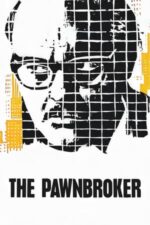Bearing Witness: Cinema and the Unfolding Horror of Jewish Persecution
It’s a heavy topic, undeniably. But it's also one that demands our attention, our empathy, and frankly, our understanding. I'm talking about films depicting the persecution of Jewish people, particularly during World War II and the Holocaust. It's not always easy viewing – these stories are often brutal and heartbreaking – but they’re vital for remembering, learning, and ensuring such atrocities never happen again.
What strikes me most when revisiting these films isn't just the horror itself (though that’s certainly present), but the range of experiences portrayed. We see it in everything from the quiet heroism of "As If It Were Yesterday," a documentary showcasing the incredible bravery of Belgian citizens who sheltered Jewish children, to the desperate gamble depicted in “Voyage of the Damned,” where families clung to the hope of escape on a doomed ocean liner. The sheer desperation and ingenuity required for survival shines through in both.
And then there's the chilling exploration of how ordinary people become perpetrators, as seen in "Ordinary Men: The 'Forgotten Holocaust'." It’s profoundly unsettling – not because it sensationalizes evil, but because it forces us to confront uncomfortable questions about obedience, conformity, and the banality of evil. It makes you think, “Could this happen again? How?” (A question that feels increasingly relevant in today's world, sadly.)
What I find particularly moving is how art itself becomes a lifeline amidst unimaginable suffering. "Love Gets a Room" beautifully illustrates this – imagine staging a musical comedy within the Warsaw Ghetto! It’s an act of defiance, a reclaiming of humanity in the face of systematic dehumanization. It reminds me of stories I've read about cabaret singers performing under Nazi occupation; these acts weren't just entertainment, they were acts of resistance.
These films aren't always easy to recommend casually – they carry a weight. But if you’re looking for cinema that challenges, moves, and ultimately illuminates the human spirit in its darkest hour, then exploring this cinematic landscape is essential. "The Crossing," with its focus on siblings smuggling children across borders, or "Betrayed," which depicts the systematic rounding up of Norwegian Jews, offer different perspectives on courage and resilience.
Ultimately, these films aren't just about remembering a specific historical tragedy; they’re about understanding the fragility of freedom, the importance of empathy, and the enduring power of hope – even when it seems utterly extinguished.







































